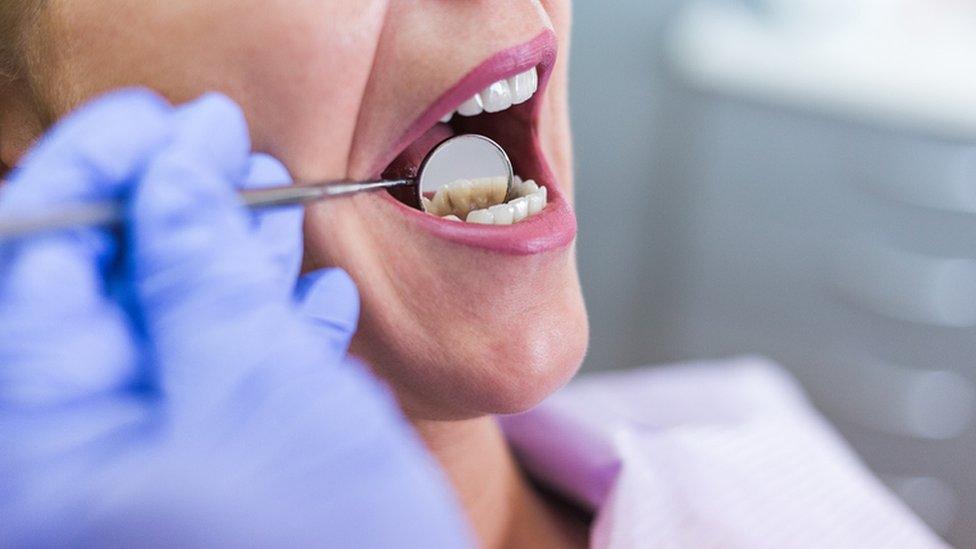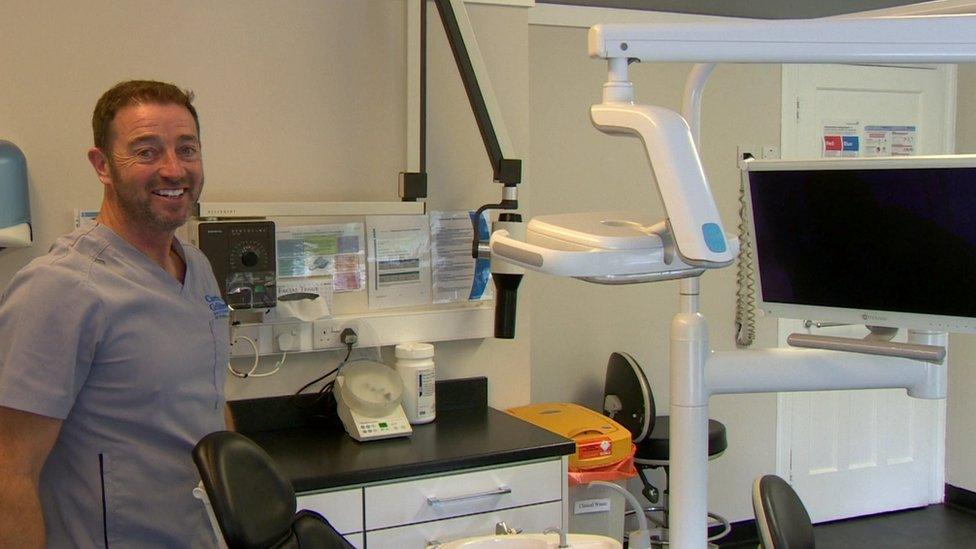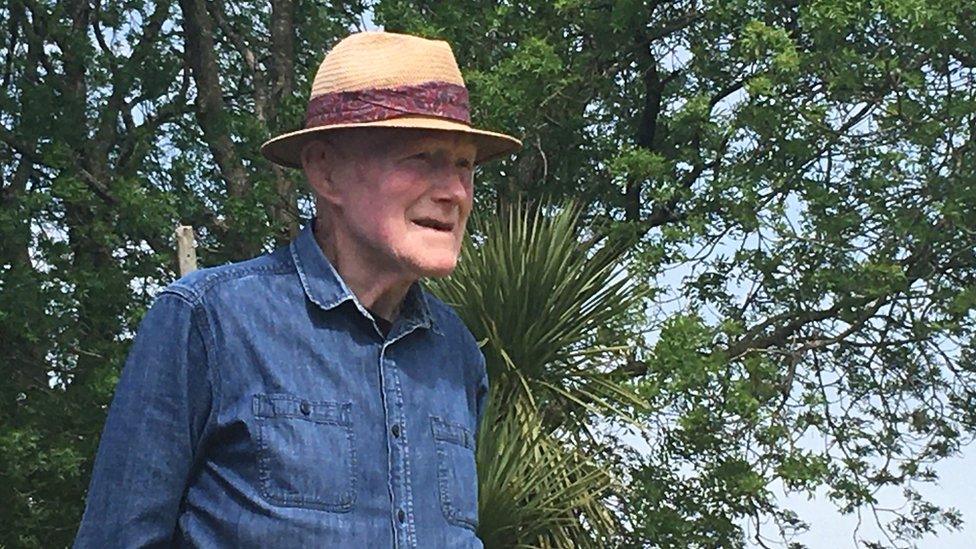Coronavirus: Phased return of dental care due to begin on Monday
- Published

Aerosol-generating procedures can throw droplets into the air, and are a safety concern
A phased return of dental services is due to begin from Monday 8 June across Northern Ireland, the Health and Social Care service (HSC) has said.
It will be a three-stage process to help address the growing number of people with pressing oral health needs.
Dental surgeries had to stop offering routine face-to-face appointments at the start of lockdown.
This is due to them involving what are called aerosol-generating procedures (AGPs).
These can result in droplets being thrown into the air, which creates the potential for Covid-19 to spread.
Five regional urgent dental care centres (UDCs) were set up for patients needing these procedures, seeing about 250 people a week.
Dentists have only been able to provide advice on pain relief and infection, and urgent care for patients with problems like uncontrolled bleeding and swelling - about 2,000 a week across Northern Ireland.
Urgent patients in surgeries
From 8 June, the HSC has said dentists will be expected to see urgent patients in their surgeries, although more complex cases where AGPs are required will still go to the regional centres.
In the second phase, AGPs will still be carried out at UDCs, with surgeries able to offer non-urgent dental care for prioritised patients in need.
The third phase will see a return to routine dental care and AGPs in dental surgeries.
There will be continuing restrictions, with guidance on aerosol settling times between patients (leaving surgeries empty for a time to allow any droplets to land), surgery cleaning and personal protection equipment (PPE).
There are no dates for the second and third phase. The acting Chief Dental Officer Michael Donaldson said progress will be guided by scientific and public health evidence.
"We're trying to strike a balance between looking after the oral health of the population and particularly those with the greatest needs, and making sure that we're protecting patients, protecting the public and protecting dentists and their staff from the spread of this virus," he said.
'We're screening everybody'
Dentist Mel Currie said the surgery will be a very new experience for everyone.
"We'll be screening everybody for their Covid status. Our staff, all patients would be checked as they come into the building as well," he said.
"We will probably meet you in full protective equipment at the door and then escort you to the surgery."

Dentists will most likely be meeting patients in full protective gear, Mel Currie has said
"The waiting room will be closed. It's very likely our toilets will be closed as well, so it's going to be a completely different experience, but under it all it will still be us, but it will feel a little bit different; take a little bit getting used to."
His practice in Armagh has a growing waiting list of about 300 patients who need treatment.
Every day, three or four patients call with problems like broken fillings and cracked teeth.
"We are seeing some patients in acute emergency situations where they have swelling, acute pain, trauma or bleeding, but really it's been, it's been very mishmash.
"We also have other patients who would have had routine appointments and routine treatments scheduled that we haven't been able to see either."
'I want to hold onto my teeth'
Richard Jones is one of those patients. His bite causes a strain on his teeth, meaning they're prone to cracking and breaking, which happened to a front tooth six weeks ago.
"My concern is that, the longer the tooth is missing, from long experience, the more the knock-on effect that other teeth will be affected," he said.
"In the past two or three weeks, I've got pressure points when I eat certain foods and that's telling me, because I've had it so often down the years, that's telling me the problems are already starting."

Richard Jones wants to avoid getting dentures
Like many other people with problems classed as non-urgent, he is looking forward to a return to the dentist's chair.
"I don't really want dentures, and I want to hold on to my teeth," he said.

LOOK-UP TOOL: How many cases in your area?
GLOBAL SPREAD: Tracking the pandemic
RECOVERY: How long does it take to get better?
A SIMPLE GUIDE: What are the symptoms?

- Published31 May 2020

- Published20 October 2020
